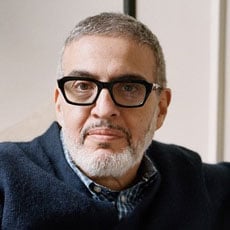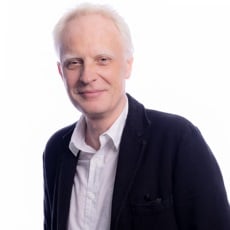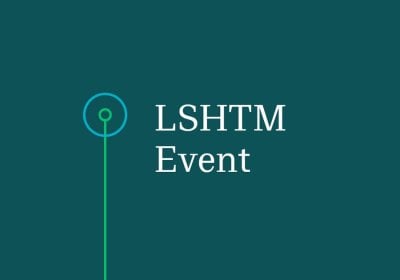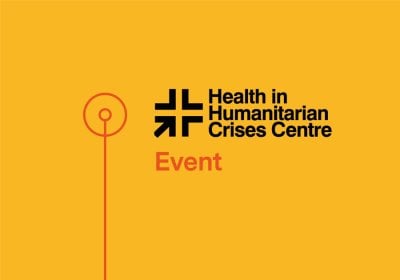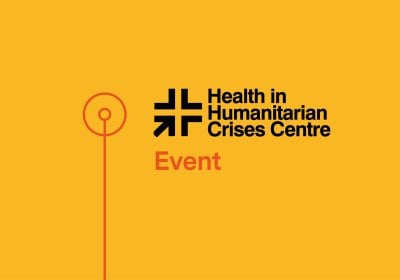The role of public health institutions in ethical reconstruction: Gaza and beyond
Exploring ethical considerations when conducting research in settings affected by humanitarian crises, and challenges of addressing hierarchical and colonial practices in Gaza and other regions where crises occur.
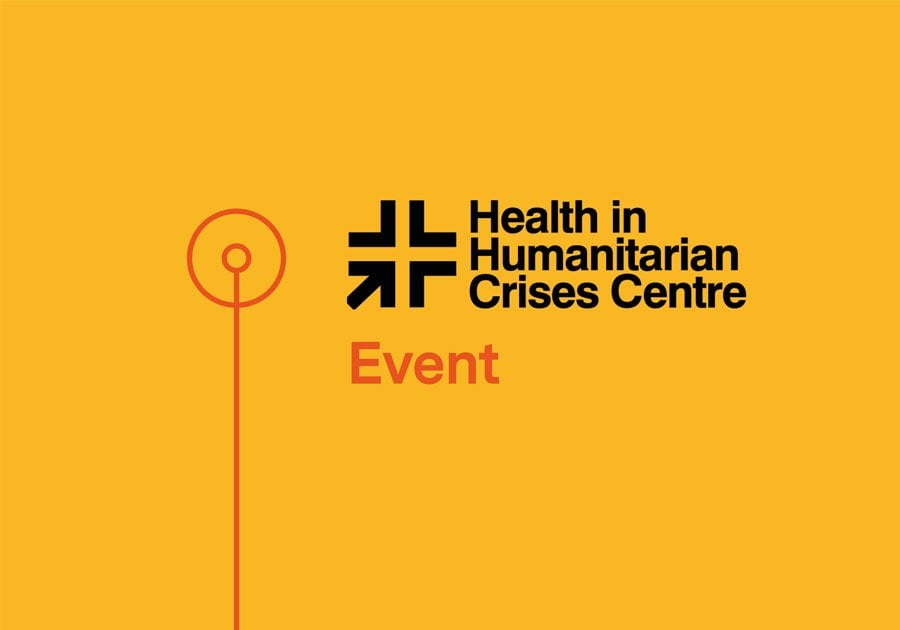
For the Health in Humanitarian Crises Centre’s annual event, we are pleased to host a conversation at LSHTM between Francesca Albanese, the UN Special Rapporteur on the Occupied Palestinian Territories, and Professor Ghassan Abu-Sittah, a renowned war surgeon and leader in conflict medicine, on the role of public health research institutions in post-conflict reconstruction. The event will be chaired by Richard Horton (Editor-in-Chief of The Lancet) and will feature a Q&A.
Our discussion will focus on the ethical considerations when conducting research in settings affected by humanitarian crises, and the challenges of addressing hierarchical and colonial practices in Gaza and other regions where crises occur. We will explore the complexities of managing the need to collect data with the need to restore healthcare services amidst conflict, the ethical considerations involved in balancing competing priorities, and discuss the broader implications of reconstruction efforts for public health and research institutions, as well as global public health policy more broadly.
The event will be followed by a drinks reception from 19:00 - 20:00.
Speakers
Francesca Albanese
Francesca Albanese is an international lawyer, specialised in human rights and the Middle East. Since May 2022, she has served as the United Nations Special Rapporteur on the situation of human rights in the Palestinian territory occupied since 1967. An affiliate scholar at the Institute for the Study of International Migration at Georgetown University, Albanese is the author of prestigious publications, including Palestinian Refugees in International Law (Oxford University Press, 2020), considered by many as a landmark in the literature on the subject, as well as other academic works on the legal situation in Israel/Palestine and Palestinian refugees. Since 2018, Albanese has taught and lectured at various universities in Europe and the Middle East. She is also responsible for the research and legal assistance program on migration and asylum seekers in the Arab world for the think tank Arab Renaissance for Democracy and Development (ARDD), and is a co-founder of the Global Network on the Question of Palestine (GNQP), a coalition of prominent regional and international experts and scholars engaged in the issue of Israel/Palestine. Prior to her scholarly engagement, she has worked with international organizations, including the United Nations (2003-2012) in the Office of the High Commissioner for Human Rights (OHCHR) and the Relief and Works Agency for Palestine Refugees (UNRWA). As Special Rapporteur, she has published numerous legal opinions and four major reports: on self-determination (2022), deprivation of liberty (2023), violated childhood (2023), and genocide (2024).
Dr Ghassan Abu-Sittah
Dr Ghassan Abu-Sittah is a British-Palestinian Associate Professor of Surgery and a Plastic & Reconstructive Surgeon. He has published extensively on the health consequences of prolonged conflict. He has worked as a war surgeon in Yemen, Iraq, Syria, South Lebanon and during the 4 wars in the Gaza Strip. He completed his medical education at University of Glasgow in the U.K. In 2012, he became Head of the Division of Plastic and Reconstructive Surgery at the American University of Beirut Medical Centre, Clinical Lead of its Pediatric War injuries program and War Injuries Multidisciplinary Clinic. In 2015, he co-founded and became director of the Conflict Medicine Program at Global Health Institute at the American University of Beirut. He is an Honorary Senior Clinical Lecturer at the Centre for Blast Injury Studies at Imperial College University of London and Visiting Senior Lecturer at the Conflict & Health Research Group at Kings College London University. He is Clinical Lead for the Operational Trauma Initiative at the World Health Organization’s EMRO Office and served on the board of directors of INARA, a charity dedicated to providing reconstructive surgery to war injured children in the Middle East, and Board of Trustees of the UK based Medical Aid for Palestinians. In April of 2024, he was elected Rector of Glasgow University. His work was featured by numerous newspapers and media outlets notably La Monde, The Independent, Telegraph, BBC and CNN.
Chair
Richard Horton
Richard Horton is Editor-in-Chief of The Lancet. He qualified in physiology and medicine with honours from the University of Birmingham in 1986. He joined The Lancet in 1990, moving to New York as North American Editor in 1993. In 2016, he chaired the Expert Group for the High Level Commission on Health Employment and Economic Growth, convened by Presidents Hollande of France and Zuma of South Africa. From 2011 to 2015, he was co-chair of the UN's independent Expert Review Group on Information and Accountability for Women's and Children's Health. In 2011, he was elected a Foreign Associate of the US Institute of Medicine and, in 2015, he received the Friendship Award from the Government of China. In 2019, he was awarded the WHO Director-General’s Health Leaders Award for outstanding leadership in global health and the Roux Prize in recognition of innovation in the application of global health evidence. In 2021, he received the Physicians for Human Rights Award in recognition of extraordinary leadership in advancing health and human rights. He now works to develop the idea of planetary health – the health of human civilizations and the ecosystems on which they depend. In 2020, he published The COVID-19 Catastrophe: What’s Gone Wrong and How to Stop It Happening Again. A revised, updated, and expanded second edition was published in 2021. As part of the UK’s 2023 Honours, Dr Horton was awarded the Order of the British Empire (OBE) in recognition for services to Health and Medical Journalism.
Admission
Contact

